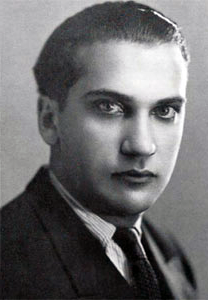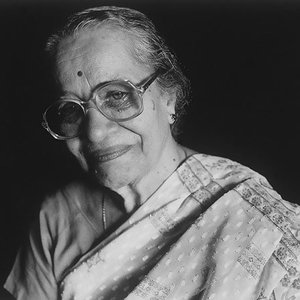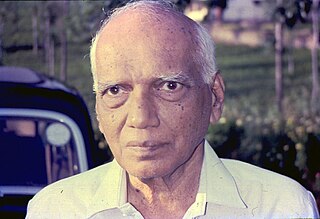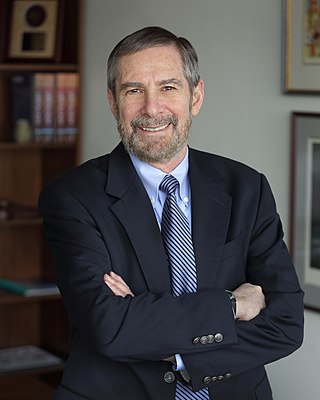
Vulimiri Ramalingaswami was an Indian medical scientist, pathologist and medical writer. His pioneering research on nutrition got him elected to the National Academy of Sciences, Russian Academy of Medical Sciences and the Royal Society of London.

Jacinto Convit García was a Venezuelan physician and scientist, known for developing a vaccine to prevent leprosy and his studies to treat cancer. He played a role in founding Venezuela's National Institute of Biomedicine and held many leprosy-related positions. Among Convit's many honors for his work on leprosy and tropical diseases was Spain's Prince of Asturias Award in the Scientific and Technical Research category and France's Legion of Honor. In 1988, Convit was nominated for a Nobel Prize in Medicine for his experimental anti-leprosy vaccine.

Gajendra Pal Singh Raghava is an Indian bio-informatician and head of computational biology at the Indraprastha Institute of Information Technology.

Manchanahalli Rangaswamy Satyanarayana Rao known by the abbreviation M. R. S. Rao, is an Indian scientist. He has been awarded the fourth highest civilian award Padma Shri in Science and Engineering category by the Government of India. He was the President of Jawaharlal Nehru Centre for Advanced Scientific Research (JNCASR) in Bangalore, India (2003-2013).
Vasant Ramji Khanolkar, better known as V. R. Khanolkar, was an Indian pathologist. He made major contributions to the epidemiology and understanding of cancer, blood groups, and leprosy. He has been called the "Father of Pathology and Medical Research in India."

Kamal Jayasing Ranadive was an Indian biomedical researcher known for her research on the links between cancers and viruses. She was a founding member of the Indian Women Scientists' Association (IWSA).
Indira Nath was an Indian immunologist. Her major contribution in medical science deals with mechanisms underlying immune unresponsiveness in man, reactions and nerve damage in leprosy and a search for markers for viability of the Leprosy bacillus. Prof. Nath's fields of specialisations are Immunology, Pathology, Medical biotechnology and communicable diseases.
Dr. Kodaganur S. Gopinath, MS, FAMS, FRCS (Edin) is an Indian surgical oncologist, known for his pioneering work on oncological research. He is a recipient of many awards including Dr. B. C. Roy Award, considered to be the premier medical honour in the country. The President of India recognised his services to the field of oncology, by awarding him the fourth highest civilian award, Padma Shri, in 2010.
Narayana Panicker Kochupillai, popularly known as N. P. Kochupillai, is an Indian clinical endocrinologist, Professor Emeritus of the National Academy of Medical Sciences and a former head of the department of Endocrinology and Metabolism at the All India Institute of Medical Sciences, New Delhi, known to have contributed to the understanding of endemically prevalent endocrine and metabolic disorders. A winner of 2002 Dr. B. C. Roy Award, he was honoured by the Government of India in 2003 with Padma Shri, the fourth highest Indian civilian award.

Anthony Rex Hunter is a British-American biologist who is a Professor of Biology at the Salk Institute for Biological Studies and the University of California San Diego. His research publications list his name as Tony Hunter.

Natteri Veeraraghavan (1913-2004) was an Indian physician, microbiologist and medical researcher, known for his contributions to the understanding of diseases like rabies, tuberculosis and leprosy. He was a former director of the Pasteur Institute of India, Coonoor and the chairman of the World Health Organization International Reference Center on Rabies. He was honoured by the Government of India in 1967, with the award of Padma Shri, the fourth highest Indian civilian award for his contributions to the society.

Douglas R. Lowy is the Acting Director and Principal Deputy Director of the U.S. National Cancer Institute (NCI) and Chief of the Laboratory of Cellular Oncology within the Center for Cancer Research at NCI. Lowy served as Acting Director of NCI between April 2015 and October 2017 following the resignation of Harold E. Varmus, M.D., and again between April and November 2019, while Director Norman Sharpless served as the Acting Commissioner of the U.S. Food and Drug Administration. He resumed the role of Acting Director on May 1, 2022, when Sharpless stepped down. Lowy has served as Deputy Director of the NCI since 2010, alongside former directors Varmus and Sharpless. Lowy was co-recipient of the National Medal of Technology and Innovation in 2014 and the Lasker-DeBakey Clinical Medical Research Award in 2017.
Anil Suri is a cancer researcher working in the field of Translational Cancer research at the National Institute of Immunology in New Delhi, India. He is a fellow of the Indian National Academy of Medical Sciences, a fellow of National Academy of Sciences, India, editorial board member of Cancer Research, vice president of the Indian Society for the Study of Reproduction and Fertility (ISSRF) and was an Executive Member of Indian Association of Cancer Research.
Tapas Kumar Kundu is an Indian molecular biologist, academician and at present the Director of Central Drug Research Institute, a prestigious research institute of Council of Scientific and Industrial Research at Lucknow. He is the head of the Transcription and Disease Laboratory of Jawaharlal Nehru Centre for Advanced Scientific Research. He is known for his studies on the regulation of Gene expression and his contributions in cancer diagnostics and the development of new drug candidates for cancer and AIDS therapeutics. He is an elected fellow of the Indian Academy of Sciences, Indian National Science Academy and the National Academy of Sciences, India and a J. C. Bose National Fellow of the Department of Science and Technology. The Council of Scientific and Industrial Research, the apex agency of the Government of India for scientific research, awarded him the Shanti Swarup Bhatnagar Prize for Science and Technology, one of the highest Indian science awards, in 2005, for his contributions to biological sciences. He is also a recipient of the National Bioscience Award for Career Development of the Department of Biotechnology.
Nuggehalli Raghuveer Moudgal was an Indian reproductive biologist, endocrinologist and the chairman of the Department of Biochemistry and dean of Faculty of Science at the Indian Institute of Science. He was known for his pioneering researches on gonadotropin and was an elected fellow of the Indian Academy of Sciences and the Indian National Science Academy. He was an associate of noted scientists, Choh Hao Li and Rodney Robert Porter and discovered the role of hormones in generating immune response in living beings, during his association with the former. The Council of Scientific and Industrial Research, the apex agency of the Government of India for scientific research, awarded him the Shanti Swarup Bhatnagar Prize for Science and Technology, one of the highest Indian science awards for his contributions to Medical Sciences in 1976.
Yagya Dutta Sharma is an Indian molecular biologist, professor and head of the department of biotechnology at the All India Institute of Medical Sciences, Delhi. An elected fellow of all three major Indian science academies — Indian National Science Academy, Indian Academy of Sciences, and National Academy of Sciences, India — Sharma is known for his research on the molecular biology of malaria. The Council of Scientific and Industrial Research, the apex agency of the Government of India for scientific research, awarded him the Shanti Swarup Bhatnagar Prize for Science and Technology for his contributions to medical sciences in 1994.
Deepak Gaur was an Indian molecular biologist, and a professor at the School of Biotechnology of Jawaharlal Nehru University. Known for his studies on Plasmodium falciparum, Gaur is a recipient of the N-Bios Prize. The Council of Scientific and Industrial Research, the apex agency of the Government of India for scientific research, awarded him the Shanti Swarup Bhatnagar Prize for Science and Technology, one of the highest Indian science awards, for his contributions to medical sciences in 2017.
Sudhanshu Vrati is an Indian immunologist, microbiologist and the director of the Regional Centre for Biotechnology. Known for his studies in the fields of RNA virus replication and vaccine development, Vrati is an elected fellow of the National Academy of Sciences, India, Indian National Science Academy and the Indian Academy of Sciences. The Department of Biotechnology of the Government of India awarded him the National Bioscience Award for Career Development, one of the highest Indian science awards, for his contributions to biosciences in 2003.
Santasabuj Das is an Indian medical doctor, molecular immunologist, bioinformatician and a scientist at the National Institute of Cholera and Enteric Diseases, Kolkata. He is known for his studies on the pathogenesis of various types of infections caused by Salmonella in humans and is an elected fellow of the West Bengal Academy of Science and Technology. He is a former Fulbright scholar and a life member of the Probiotic Association of India, the Society of Biological Chemists, India and the Indian Science Congress Association. The Department of Biotechnology of the Government of India awarded him the National Bioscience Award for Career Development, one of the highest Indian science awards, for his contributions to biosciences, in 2011.
Veerappan Muthukkaruppan or VR. Muthukaruppan, also known as Dr. VRM, is an Indian immunologist. He worked for more than three decades as a professor of immunology at Madurai Kamaraj University. His primary research interests have been in the creation of potential vaccines and the use of purified porine for the diagnosis of murine typhoid, for which he has also created a number of monoclonal antibodies. Muthukkaruppan has researched the pathogenesis of Eales disease while attending Madurai Kamaraj University in association with Aravind Eye Hospital in Madurai. As a result, he accepted an invitation to become the Aravind Medical Research Foundation's Director of Research in 1999 and to set up a lab for fundamental studies on eye illnesses. His research interests include the discovery of unique markers for human corneal epithelial stem cells, the immunology and aetiology of ocular inflammation linked to leptospirosis, the prevention of posterior capsular opacification, and the pathogenic mechanisms underlying diabetic retinopathy and Eales disease. From 1994 until 1997, Muthukkaruppan served as the Vice-Chancellor of Tamil Nadu's Bharathidasan University. The Indian Immunology Society elected him as its President from 1981 to 1982.








